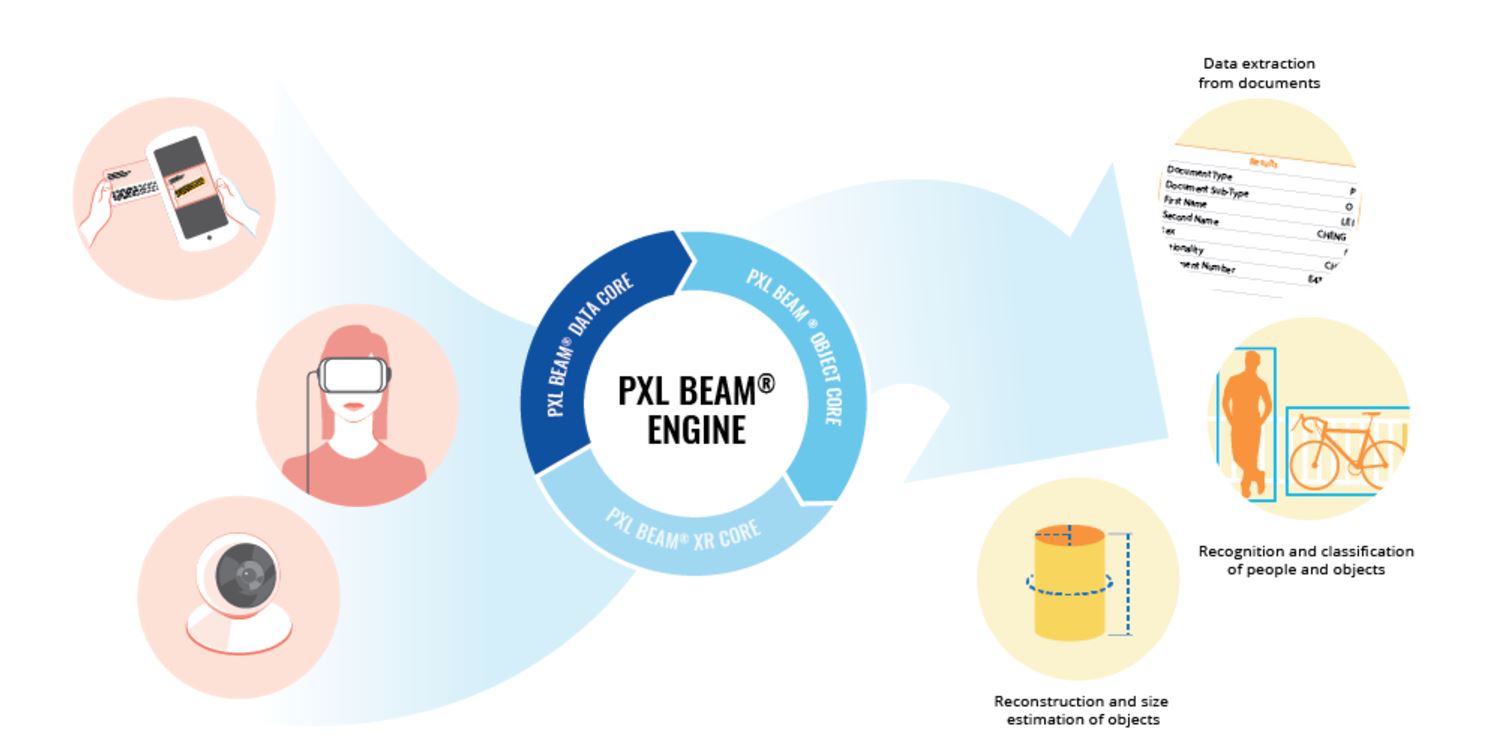Former Dacuda Employees Form Computer Vision Company, PXL Vision AG
Money can buy technology and patents, but it takes more than that to keep talented people, as Magic Leap is learning. The secretive augmented reality company purchased Dacuda and its patented technology in February, but not all the minds that created the tech stuck around. Four key Dacuda employees who worked together for eight years developing Dacuda’s technology, including company co-founder and CTO Michael Born, left to start a new computer vision company called PXL Vision AG. The four partners founded the new company is March 2017 but just announced its presence.
“Our mission is to enable the digital transformation of customer businesses based on Computer Vision, AI, Deep Learning and VR/AR,” said Michael Born, CEO of PXL Vision AG and former CFO and co-founder of Dacuda. “The team’s experience of an 8-year-journey with Dacuda is an invaluable asset in being recognized by our customers as a trusted long-term partner for unique Computer Vision based software solutions.”
The team;s first product is PXL Beam, which it described as a “software engine for the identification, classification, and visualization of data, people, and objects.” In other words, the company built technology that helps computers identify things.
“Thanks to our technology and expertise, we are well positioned to offer unique solutions in these fast-growing markets,” said Karim Nemr, CBO of PXL Vision and former Head of Sales at Dacuda. “Our customers are using PXL Beam for use cases ranging from mobile onboarding and authentication in the telco industry to check-in in aviation and to the creation of the next generation virtual reality consumer headsets.”
The company developed a series of applications within the PXL Beam platform that offer solutions for a variety of industries. PXL Beam OnBoard simplifies the customer onboarding process for businesses that rely heavily on accurate customer identification, such as airlines and banks. The tool is designed to allow businesses to identify customers through facial recognition and ID documents captured through a smartphone. It also enables on-device contract signing.
Another product, the PXL Beam MRX app, can read and capture data from machine readable identification documents with a smartphone. The app supports ID documents from all around the world and captures information automatically with no user interaction. PXL Vision said that the technology integrates seamlessly into other applications.
PXL Vision AG also aims to help airlines automate the bag drop process, and hopefully lose fewer pieces of luggage in the process. PXL Beam BagDrop technology can capture information about luggage and classify the bags according to size and shape, no matter how the parcel is placed on the conveyor belt. The BagDrop software requires no special camera--it works with standard low-cost RGB cameras.
Get Tom's Hardware's best news and in-depth reviews, straight to your inbox.
PXL Beam StockID is a solution that helps companies automate warehouse stock management and improve loss prevention. The camera-based stock management system automatically identifies and records all packages that pass through a pre-defined area. It assigns a digital fingerprint to every object in the facility and provides real-time reports of the current inventory.
There's also a fraud protection solution for auto dealers called PXL Beam VIN. The software allows you to instantly capture the VIN through the windshield of a vehicle, even in poor lighting conditions where reflections make it hard to read the numbers manually. PXL Vision AG said that PXL Beam VIN “performs a range of security checks to prevent fraud.” However, it didn’t explain what those security checks do for dealerships.
Before Magic Leap purchased Dacuda, the founders of PXL Vision AG were working on a camera-based 6DoF tracking system for smartphone-based VR headsets, and indeed they're still pursuing the booming VR market with PXL Beam VR, a solution that “simulates most of the functions of an HTC Vive” on smartphones. The PXL Beam VR platform also allows you to stream SteamVR content from a PC to a mobile headset. PXL Beam VR’s tracking solution uses the sensors inside a smartphone coupled with two IMU-based controllers to allow you to play room-scale games with a basic Cardboard-style VR HMD.
PXL Vision AG didn’t say when the PXL Beam product stack would be available, nor how much it charges for software licensing.
Kevin Carbotte is a contributing writer for Tom's Hardware who primarily covers VR and AR hardware. He has been writing for us for more than four years.
